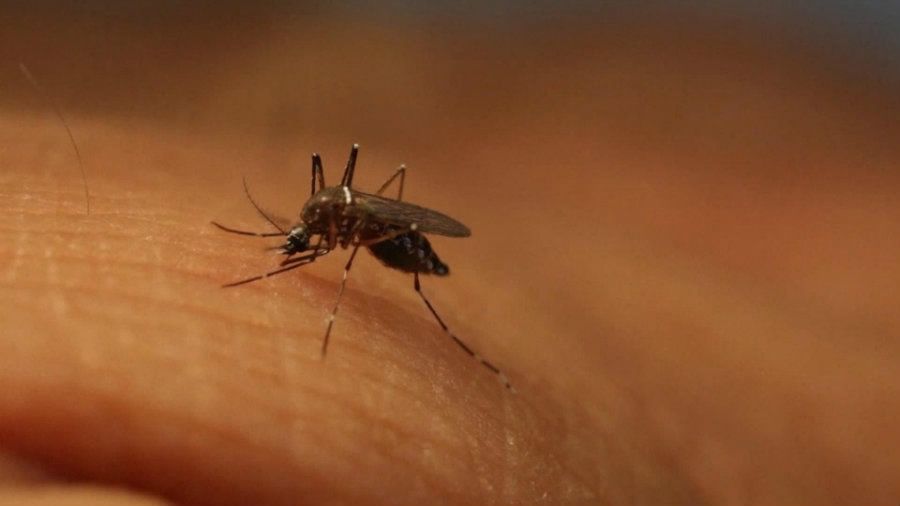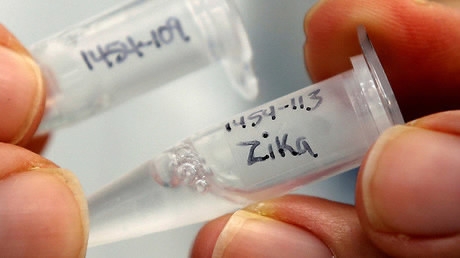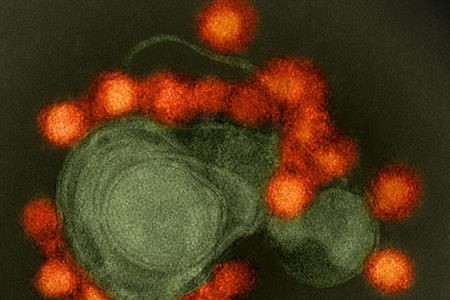
Tech & Sci
11:01, 06-Sep-2017
Zika virus may become a new tool to fight brain cancer

The Zika virus can unleash havoc on the brain of a developing fetus, but its destructive power may also be harnessed to fight a stubborn form of adult brain cancer, researchers said Tuesday.
Early studies have shown the mosquito-borne virus can destroy cells responsible for glioblastoma, the most common form of brain cancer.
Glioblastoma affects 12,000 people per year in the United States and was recently diagnosed in US Senator John McCain. The standard treatment is chemotherapy and radiation. But most patients die within two years.
"It is so frustrating to treat a patient as aggressively as we know how, only to see his or her tumor recur a few months later," said Milan Chheda from Washington University School of Medicine in St. Louis.
"We wondered whether nature could provide a weapon to target the cells most likely responsible for this return."

Researchers will test the possibility of using the Zika virus as a weapon to target and destroy brain tumor cells, which might lead to new cancer treatments. /Reuters Photo
Researchers will test the possibility of using the Zika virus as a weapon to target and destroy brain tumor cells, which might lead to new cancer treatments. /Reuters Photo
The secret to Zika's apparent success, the latest experiments show, is that the virus takes aim at brain cancer stem cells, the kind capable of surviving chemotherapy and spread.
When a pregnant woman is infected with Zika, she faces a higher risk of bearing an infant with an unusually small head because Zika destroys these very cells, leading to the irreversible condition known as microcephaly.
Zika tends to attack neuro progenitor cells, which are common in fetuses but rare in adults.
"We showed that Zika virus can kill the kind of glioblastoma cells that tend to be resistant to current treatments and lead to death," said study co-author Michael Diamond, professor of medicine at Washington University School of Medicine in St. Louis.

Reuters Photo
Reuters Photo
Researchers injected either Zika virus or a salt water placebo directly into the brain tumors of 33 mice, said the report in The Journal of Experimental Medicine.
Two weeks later "tumors were significantly smaller in the Zika-treated mice," said the report. These mice also survived "significantly longer than the ones given salt water."
More work is needed before the treatment can be safely attempted in humans. The virus would likely be injected directly into the brain during surgery to remove the primary tumor.

Transmission electron microscope image of negative-stained, Fortaleza-strain Zika virus (red), isolated from a microcephaly case in Brazil. /US National Institute of Allergy and Infectious Diseases (NIAID) Photo
Transmission electron microscope image of negative-stained, Fortaleza-strain Zika virus (red), isolated from a microcephaly case in Brazil. /US National Institute of Allergy and Infectious Diseases (NIAID) Photo
Extra studies on Zika's effects on the brain tissue of epilepsy patients showed the virus did not infect non-cancerous brain cells.
"We see Zika one day being used in combination with current therapies to eradicate the whole tumor," said Chheda.
10878km
Source(s): AFP

SITEMAP
Copyright © 2018 CGTN. Beijing ICP prepared NO.16065310-3
Copyright © 2018 CGTN. Beijing ICP prepared NO.16065310-3